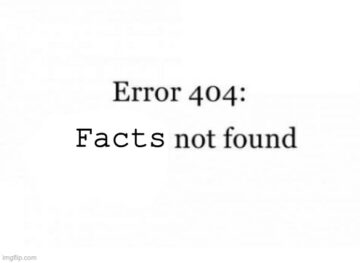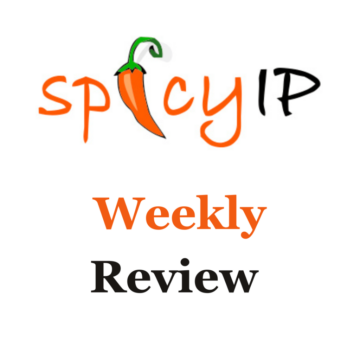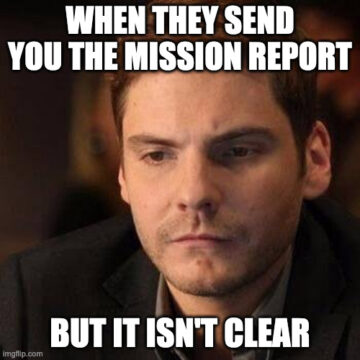
[This post is authored by SpicyIP intern Aarav Gupta. Aarav is a third-year law student at National Law University, Delhi. He is passionate about geopolitics, foreign policy, international trade, and intellectual property and spends his time reading and watching sports.]
The very anticipated Google AdWords case has reached a significant juncture in the Supreme Court (SC). The Court has dismissed the Special Leave Petition (SLP) filed by MakeMyTrip (MMT) against Google regarding the alleged misuse of MMT’s trademarks as “keywords” in Google Ads. The SLP was filed against the 14 December decision of a Division Bench (DB) of the Delhi High Court where it was held that registering trademarks as keywords cannot be considered infringement when there is no confusion or unfair advantage. The DHC had held that the keywords used by booking.com caused no such confusion in the user’s mind. (Readers interested in knowing more about this controversy can refer to this post by Sangita Sharma and this post by Vedika Chawla). This had been passed soon after another order in Google v DRS where the Court had made similar observations (see Nivrati Gupta’s post here and Aditya Gupta’s post here).
Though the Supreme Court order rejected the petition in merely 3 lines, one of our readers informed us that in the Court, the bench of Chief Justice Chandrachud and Justice Pardiwala posed a crucial query on ways in which the use of a keyword qualifies as passing off or infringement. They further insisted that there was no obvious infringement, pointing out that the competing marks “MakeMyTrip” and “Booking.com” were both visible on the screen. In any case, the bench did not venture deeper into this issue considering that the SLP was against an interim order by the DB. The Supreme Court found that MakeMyTrip was essentially claiming that Booking.com’s advertisements or links should not be visible as sponsored links on MakeMyTrip’s Google search results, which, according to them, is not a right that could reasonably be located within the Trademarks Act.
In the current case, businesses were vying for increased prominence on search result screens using an auction/bidding mechanism run by Google Ads. A predetermined price is paid to Google by the successful bidder, which is based on the quantity of clicks. As reported, MakeMyTrip also raised concerns about the possibility of a search result overlap caused by Booking.com utilizing its trademark as a term.
The above reader informed us that the counsel representing Google argued the fundamental purpose behind keywords is to provide a choice to consumers. Google’s counsel emphasized that using keywords does not lead to confusion; consumers, being discerning individuals, are not misled. It was pointed out that it is not a scenario of ‘use as a trademark’ per se. With both being well-known marks, the likelihood of confusion is minimal.
Delving deeper into the legal nuances,as informed by the above reader and reported here the Court probed the provisions of Section 29, specifically noting the petitioner’s reference to 29(2)(a) and (c). As per the provision, infringement may be caused by the “use of a similar trademark for identical or similar goods or services may also be considered infringement if it creates a likelihood of confusion.” However, the Court concluded that no deception existed. The Court also emphasized a hypothetical situation where if one were to book a ticket on ‘MakeMyTrip,’ would it inadvertently lead to ‘Booking.com’? The Court went on to state that the answer, quite evidently, would be no. Therefore, the Court understood that Booking’s use of MakeMyTrip’s mark as a keyword would not mean that it is using the keyword as a trademark, and such use will not cause any confusion among the public.
The above reader also informed us about MMT’s argument that deception caused by using a trademark as a keyword does not align with the principle of honest best practices and can be regarded as trademark infringement under Section 29. The Court maintained that such arguments are best addressed during a trial. The use of a keyword at this preliminary stage does not equate to its use as a trademark. Finally, the order was issued to dismiss the special leave petition, citing the lack of substantial evidence to warrant interference.
In the ongoing case, Justice Chandrachud posed a pertinent question: Why would individuals log into Booking.com if they intended to access MakeMyTrip? This query highlights the need to understand user motivations and the context in which they interact with online platforms. Furthermore, the CJI astutely questioned whether the auction involved the trademark itself or merely the right to claim a space. This distinction is crucial, in my opinion. If the auction pertains to the trademark, it implies ownership and control over the brand. However, if it’s about claiming space, it relates to visibility and prominence on search result screens. The respondent’s argument emphasized that the former interpretation grants entitlement to secure a prime position on the result screen. Legally, this distinction holds significance, as it impacts how users perceive and engage with these platforms. The delicate balance between competition, brand recognition, and consumer rights remains the core of the issue from a business transaction lens.
As mentioned above, since the arguments were not recorded in the Court’s order, in case there are any clarifications or comments, readers are requested to share the same in the comments below.
- SEO Powered Content & PR Distribution. Get Amplified Today.
- PlatoData.Network Vertical Generative Ai. Empower Yourself. Access Here.
- PlatoAiStream. Web3 Intelligence. Knowledge Amplified. Access Here.
- PlatoESG. Carbon, CleanTech, Energy, Environment, Solar, Waste Management. Access Here.
- PlatoHealth. Biotech and Clinical Trials Intelligence. Access Here.
- Source: https://spicyip.com/2024/03/spicyip-tidbit-supreme-court-grants-booking-com-permission-to-use-makemytrip-as-google-adword-exploring-beyond-the-3-line-order.html
- :has
- :is
- :not
- :where
- 1
- 14
- 2%
- 29
- 800
- a
- About
- above
- access
- According
- Act
- addressed
- Ads
- ADvantage
- After
- against
- align
- alleged
- also
- among
- an
- and
- Another
- answer
- Anticipated
- any
- ARE
- argued
- argument
- arguments
- AS
- At
- Auction
- authored
- Balance
- based
- BE
- been
- behind
- being
- below
- BEST
- best practices
- between
- Beyond
- book
- booking
- Booking.com
- both
- brand
- Brand recognition
- business
- businesses
- by
- CAN
- cannot
- case
- Cause
- caused
- chief
- choice
- citing
- claim
- claiming
- COM
- comments
- competing
- competition
- Concerns
- concluded
- confusion
- considered
- considering
- consumer
- Consumer Rights
- Consumers
- context
- control
- controversy
- Core
- could
- counsel
- Court
- creates
- crucial
- Current
- December
- deception
- decision
- deeper
- Delhi
- DID
- Dismiss
- distinction
- Division
- does
- during
- emphasized
- engage
- Entitlement
- essentially
- evidence
- existed
- filed
- Finally
- For
- foreign
- foreign policy
- Former
- found
- from
- fundamental
- further
- Furthermore
- Geopolitics
- goods
- Google ads
- Google Search
- Google’s
- grants
- Gupta
- had
- he
- Held
- High
- highlights
- his
- holds
- honest
- How
- However
- HTML
- HTTPS
- identical
- if
- Impacts
- implies
- in
- inadvertently
- increased
- individuals
- informed
- infringement
- intellectual
- intellectual property
- intended
- interact
- interested
- interference
- interim
- International
- International Trade
- interpretation
- into
- involved
- issue
- Issued
- IT
- ITS
- itself
- Justice
- keyword
- keywords
- Knowing
- Lack
- Law
- lead
- Leave
- Legal
- legally
- Lens
- likelihood
- lines
- links
- located
- log
- looking
- made
- maintained
- mark
- max-width
- May..
- mean
- mechanism
- mentioned
- merely
- mind
- minimal
- misuse
- more
- motivations
- my
- National
- Need
- no
- noting
- nuances
- observations
- obvious
- of
- off
- on
- ONE
- ongoing
- online
- online platforms
- Opinion
- or
- order
- our
- out
- over
- overlap
- ownership
- paid
- passed
- Passing
- passionate
- per
- permission
- Platforms
- plato
- Plato Data Intelligence
- PlatoData
- policy
- posed
- position
- possibility
- Post
- practices
- preliminary
- price
- Prime
- principle
- prominence
- property
- provide
- provision
- public
- purpose
- qualifies
- quantity
- query
- question
- Questioned
- quite
- raised
- reached
- Reader
- readers
- Reading
- recognition
- recorded
- refer
- reference
- regarded
- regarding
- registering
- Rejected..
- relates
- remains
- Reported
- representing
- requested
- result
- Results
- right
- rights
- Run
- same
- SC
- scenario
- SCI
- Screen
- screens
- Search
- Section
- secure
- see
- Services
- Share
- Sharma
- should
- significance
- significant
- similar
- since
- situation
- SLP
- Soon
- Space
- special
- specifically
- spends
- Sponsored
- Sports
- Stage
- State
- Student
- substantial
- successful
- such
- Supreme
- Supreme Court
- SVG
- term
- that
- The
- Them
- There.
- therefore
- These
- they
- this
- ticket
- time
- to
- trade
- trademark
- trademarks
- transaction
- trial
- under
- understand
- unfair
- university
- us
- use
- used
- User
- users
- using
- Utilizing
- venture
- very
- visibility
- visible
- Warrant
- was
- watching
- ways
- well-known
- went
- were
- when
- whether
- which
- why
- Wikipedia
- will
- with
- within
- would
- zephyrnet












